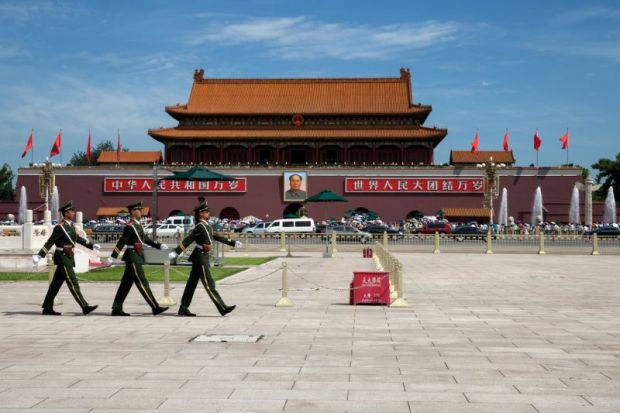Cambridge University Press is to reinstate hundreds of articles about politically sensitive topics that it removed from the website of one of its journals in China under government pressure.
The editor of the periodical, China Quarterly, said in a statement that the publisher had made the U-turn after a “justifiably intense reaction from the global academic community”.
The University of Cambridge, of which the Press is part, said the rethink followed a review by "the academic leadership of the university".
CUP removed 315 articles from the website of China Quarterly in China because an agency of the communist government threatened to pull all of the publisher's content if it did not comply.
The journal articles and book reviews in question covered issues that Beijing deems politically sensitive, such as the Tiananmen Square protests, Tibet and Taiwan, published between the 1960s and recent months.
CUP has faced considerable criticism for its decision to remove the articles. Hundreds of academics signed a petition calling for a boycott of CUP journals. One academic wrote an open letter saying that the move was “shameful” and violated academic independence.
In his statement, China Quarterly editor Tim Pringle, senior lecturer in labour, social movements and development at Soas, University of London, said he had been informed following a meeting with CUP that the publisher "intended to repost immediately the articles removed from its website in China".
He added that the publisher had initially taken down the articles without the consent of the journal.
“I would like to express my support for CUP’s decision to repost the articles. It comes after a justifiably intense reaction from the global academic community and beyond,” Dr Pringle said.
“Access to published materials of the highest quality is a core component of scholarly research. It is not the role of respected global publishing houses such as CUP to hinder such access."
In a statement, a University of Cambridge spokesman said that the decision to block content "was taken as a temporary measure pending discussion with the academic leadership of the University of Cambridge, and pending a scheduled meeting with the Chinese importer in Beijing".
"The academic leadership of the university has now reviewed this action in advance of the meeting in China later this week," the spokesman said.
“Academic freedom is the overriding principle on which the University of Cambridge is based. Therefore, while this temporary decision was taken in order to protect short-term access in China to the vast majority of the Press’ journal articles, the university’s academic leadership and the Press have agreed to reinstate the blocked content, with immediate effect, so as to uphold the principle of academic freedom on which the university’s work is founded.”
Dr Pringle said that China Quarterly will continue to publish articles that make it through the “rigorous, double-blind peer review regardless of topic or sensitivity”. The journal's publication criteria – scientific rigour and contributing to knowledge about China – will not change, he added.
Register to continue
Why register?
- Registration is free and only takes a moment
- Once registered, you can read 3 articles a month
- Sign up for our newsletter
Subscribe
Or subscribe for unlimited access to:
- Unlimited access to news, views, insights & reviews
- Digital editions
- Digital access to THE’s university and college rankings analysis
Already registered or a current subscriber? Login







